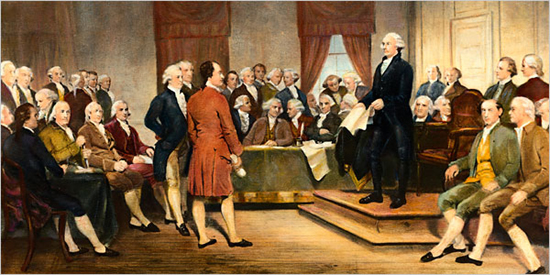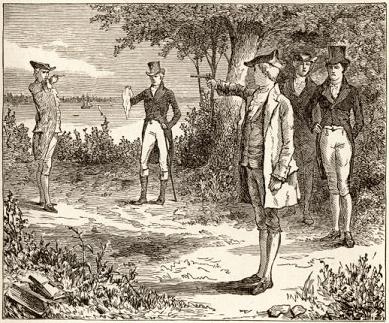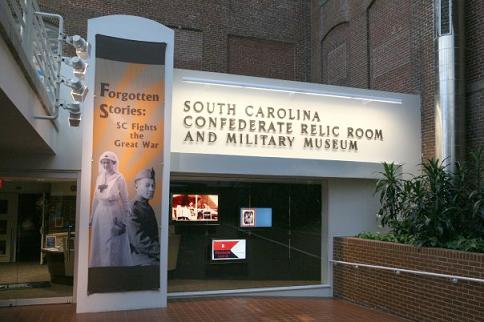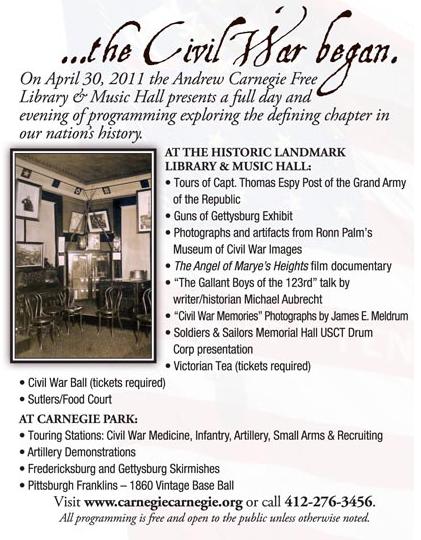What did he say?

Over the last week my friend Richard Williams and I have been sharing a spirited debate about the Tea Party Movement. One of our discussions deals with the Founding Father’s intent in regards to religion and government (Read Here). You may notice that Richard loves to use quotes. I sometimes use quotes too, but over the last few days, I have come to the conclusion that they simply don’t work by themselves in support of an argument. Why? When a quote is used in isolation simply to defend one’s view against another, there is no context or time reference. It has been literally cut from its place and time or origin and pasted into another. Most of the time this renders the quote moot. Just like us, people throughout the course of history have changed their minds and evolved. What is said today, may contradict what is said tomorrow. If you were to quote Abraham Lincoln’s views on slavery early in the Civil War, and then quoted him on the same subject after, you would get two completely different perspectives. Same with the Founding Fathers, their memoirs, letters and publications are full of contradictions and hypocrisy. Quoting complex individuals like a John Adams or Thomas Jefferson in isolation can be dicey at times. These were brilliant men who lived in an "Age of Enlightenment" and penned thousands of papers. They were also constantly re-evaluating the world around them.
Our current debate deals specifically with the establishment of the country’s foundation and what did the Founders believe at that time. Richard contends that the Founders established a Christian nation, while I believe the concept of a 'Christian nation' goes against the very essence of what they were trying to accomplish. Here are two examples of quotes that Richard offered and my counter-quotes. I have added the source information for reference:
Thomas Jefferson:
Richard’s: “The practice of morality being necessary for the well being of society, He [God] has taken care to impress its precepts so indelibly on our hearts that they shall not be effaced by the subtleties of our brain. We all agree in the obligation of the moral principles of Jesus and nowhere will they be found delivered in greater purity than in His discourses.” – Thomas Jefferson to James Fishback (1809)
Mine: “Because religious belief, or non-belief, is such an important part of every person's life, freedom of religion affects every individual. Religious institutions that use government power in support of themselves and force their views on persons of other faiths, or of no faith, undermine all our civil rights. Moreover, state support of an established religion tends to make the clergy unresponsive to their own people, and leads to corruption within religion itself. Erecting the ‘wall of separation between church and state,’ therefore, is absolutely essential in a free society.” – Thomas Jefferson to Virginia Baptists (1808)
John Adams:
Richard’s: “The general principles on which the fathers achieved independence were the general principles of Christianity. I will avow that I then believed, and now believe, that those general principles of Christianity are as eternal and immutable as the existence and attributes of God.” – John Adams to Thomas Jefferson (1813)
Mine: “The United States of America have exhibited, perhaps, the first example of governments erected on the simple principles of nature; and if men are now sufficiently enlightened to disabuse themselves of artifice, imposture, hypocrisy, and superstition, they will consider this event as an era in their history. …It will never be pretended that any persons employed in that service had interviews with the gods, or were in any degree under the influence of Heaven, more than those at work upon ships or houses, or laboring in merchandise or agriculture; it will forever be acknowledged that these governments were contrived merely by the use of reason and the senses.” – John Adams, A Defence of the Constitutions of Government of the United States of America (1787-88)
So were they for or against establishing America as a Christian-Nation? In this case both quotes contradict one another. One could dispute the time context, in which case the older quotes (mine) would be accurate as they are closer back to the country’s founding. However, you could counter-argue that both men grew to embrace the concept in which case the newer quotes (Richard’s) are plausible. My point is that you can quote and counter-quote people again-and-again and still not know what they were truly thinking. One quick search on the Internet reveals hundreds of pages of historical quotes, which have been isolated and manipulated to support all kinds of agendas. Christians, atheists, conservatives and liberals all have websites that reprint the Founding Father’s words for and/or against their cause.
So who is right and who is wrong? I think the answer is – it depends…
Next piece for PAR

I am researching material for a piece for Patriots of the American Revolution magazine about the infamous Alexander Hamilton – Aaron Burr duel. In addition to the event itself, I am including a sidebar that outlines the proper rules of engagement for dueling. Burr is someone that I know very little about and I am looking forward to learning about his life after the duel. What was it like to be the man who killed Alexander Hamilton? Burr’s adversary has always been a perplexing character to me and at first glance, personifies the stubborn “alpha-male” who is incapable of standing down. I wonder if this is true. Two of Hamilton’s peers, Ben Franklin and George Washington both opposed the practice of dueling. Franklin referred to duels as a “murderous practice” adding that “they decide nothing” and Washington urged his officers to refuse any challenges during the Revolutionary War. Unfortunately these opinions were lost on their colleague who was mortally wounded and died on July 12, 1804.
The end of the article will deal with the after-effects of Hamilton’s death on the public’s conscience. Many people are unaware of the anti-dueling movement that arose from his death. Hamilton’s father-in-law attended a church in Albany where Pastor Eliphalet Nott gave a sermon that was reprinted in a tract titled A Discourse, Delivered in the North Dutch Church, in the City of Albany, Occasioned by the Ever to be Lamented Death of General Alexander Hamilton, July 29, 1804. Two years later, a minister named Lyman Beecher delivered an anti-dueling sermon later re-printed in a pamphlet as The Remedy for Dueling, which was distributed by the Anti-Dueling Association of New York. Both clergymen were more successful in spreading their message than their predecessor, the Reverend Mason Weems, who had published a fiery pamphlet titled God’s Revenge Against Dueling prior to the Hamilton-Burr match. In this sense, Hamilton’s death helped to bring about the end of dueling in America.
Movies and museums

There are two items of note that I would like to share today, both are in regards to museums. Last week my partner Clint Ross and I received a request from the good folks at the Confederate Relic Room Museum in Columbia SC, who wanted to add our movie to their exhibits. Needless to say we granted them permission and they changed the museum’s entry exhibit from a WWI film to ours. Now every visitor entering the CRRM will see “The Angel of Marye’s Heights” running in a loop. As soon as I get a photo of the exhibit, I will post more detail over on the movie’s blog. BTW: Right Stripe Media has been working pre-production for our next project and I will share the details in a future post.
Yesterday The Free Lance-Star published an Op-Ed on behalf of the National Civil War Life Foundation. Many of you know that I sit on the board and handle the NCWLF’s website. Over the last 3 years we have had our share of ups and downs while trying to establish a new museum in the Fredericksburg/Spotsylvania area. Our primary goal as of now is simply establishing a venue. We have a collection of over 2,000 items and no place to share it with the public. Hopefully this letter will generate some support. You can read our statement here.
Save the date

Upcoming lecture

Members of the Capt. Thomas Espy Post No. 153 of the Grand Army of the Republic
This week I completed my presentation for the upcoming Civil War Weekend (April 30th) at the Carnegie-Carnegie Music Hall. Back in November, I had the privilege of hosting a premiere for our documentary on Richard Kirkland at the Carnegie and I was thrilled when they asked if I would return to present a lecture and host another film screening. (I get to do both twice.)
My speech is titled “The Gallant Boys of the 123rd” and presents the experiences of the Pennsylvania Volunteer Infantry at the Battle of Fredericksburg. In addition to having a library and music hall, the Carnegie-Carnegie is also the home to the Capt. Thomas Espy Post No. 153 of the Grand Army of the Republic. We know for a fact that there were at least three veterans of the 123rd who survived the Battle of Fredericksburg and were later members of the Espy Post, hence the tie in to our film.
In addition to the 123rd Vols., I also spend time talking about General Andrew A. Humphreys, who led men from the Pennsylvania Infantry in the assault on Marye’s Heights. His troops were the furthest to advance on this portion of the Army of Northern Virginia’s lines. Today, Humphreys’ statue commands the center of the Fredericksburg National Cemetery, the final resting place of 15,000 Federal troops who never made it home. Next to the Kirkland monument, his is the only statue on the field.
In my research I have come to the conclusion that there is a limited amount of materials published specifically on the 123rd. Shortly after the war Samuel Bates wrote a study titled “History of the Pennsylvania Volunteers, 1861-65” and more recently, a Pittsburgh attorney named Scott Lang, wrote an outstanding book called “The Forgotten Charge: The 123rd Pennsylvania at Marye’s Heights.”
Both of these sources provided me with some great background information. I am also using National Park Historian Frank O-Reilly’s description of the 123rd’s preparation and entry into battle from his excellent book “The Fredericksburg Campaign: Winter War on the Rappahannock.”
It would be redundant for me to simply rehash these gentlemen’s findings, so when I was preparing for this talk I wanted to bring something special to the podium. What I was able to do, through the help of my friends at the National Park Service, was to get transcripts from four diaries belonging to members of the 123rd. None of these memoirs have been published and I am quoting a sample of their recordings before and after the battle.
I must say that this lecture was a breath of fresh air as it is the first of mine to concentrate entirely on the Union perspective. Those familiar with my work know that the majority of my books and speaking engagements have always been focused on the Confederacy. It was while working on “The Angel of Marye’s Heights” that I started to realize the one-sidedness of my writings and this initiated a desire to cross battle lines and expand my attentions toward the boys in blue.
I am anxious to see what responses I get. On a few occasions that I have presented the Northern perspective, I have been met with backlash by a minority of individuals who were offended that I spent time on those “Damn Yankees.” In fact, one southern-based group absolutely refused to review my devotional “The Southern Cross” after they saw that I included a handful of Union stories. Apparently the 45 Confederate – to – 5 Union stories was unacceptable so they returned the review copy to me on their own dime.
Personally, I found that to be offensive. Growing up in Pittsburgh as a devout Civil War 'buff,' I never really favored either side. After moving to Fredericksburg in 1994, I became serious about my writing and perhaps it was my location, or my initial focus on religion during the war that led me to focus on the South. Years later, 5 of my 6 books are clearly written from the Confederate perspective.
During my last speech in November, I saw an opportunity to tie the Kirkland film and the Espy Post together through the 123rd. This presentation was a great way to do that. Admittedly it is total speculation, but many members of the 123rd were trapped on the field overnight. Some were severely wounded and ‘could have’ been tended to by Richard Kirkland on the morning after the battle.
James M Watson was shot and remained bleeding on the field until the following morning. Eventually he was removed by an ambulance crew assigned to the 123rd, but would die six weeks later on January 28th, 1863. His story, as well as that of several comrades in arms who survived the war are included in my talk. I am using their own words as well as a series of photographs and illustrations to compliment my narrative.
As with past talks, I hope to record the event on video. Regardless, I will be sure to post the transcripts and slides here on Blog or Die. Of all the wonderful things that I get to do, speaking engagements are by far the most fun. What better way to meet people, feed your ego, sell your wares and share our nation’s history with the masses. This will be my 18th formal speaking engagement and to be able to present it in my hometown, and follow it with a screening of our movie is a blessing indeed.
For more information on this FREE event, visit the Carnegie-Carnegie website and scroll down to their Civil War Weekend link.
COMING UP: A noted teacher and historian from CA is planning on using “The Angel of Marye’s Heights” in her 8th Grade history classes to show Kirkland’s story and how it is remembered. She is also developing some age-appropriate classroom materials to go with the film. In appreciation, I am recording a special video message for the students and asking them to share their thoughts on the movie. Their responses will be posted on a special section over on the movie’s official website and we will be making this courseware available to teachers who wish to purchase our film. Stay tuned.









